If you have asthma and reach for an over-the-counter painkiller for a headache or sore muscles, you could be putting yourself at risk - even if you’ve never had a problem before. It’s not just about taking too much. For about 7% of people with asthma, certain pain relievers can trigger a serious, sometimes life-threatening reaction. This isn’t an allergy in the traditional sense. It’s called NSAID-Exacerbated Respiratory Disease, or NERD. And if you have chronic nasal polyps or long-standing sinus issues, your risk jumps to nearly half.
What Happens When NSAIDs Trigger Asthma
NSAIDs - like aspirin, ibuprofen, and naproxen - work by blocking enzymes called COX-1 and COX-2. In most people, that’s fine. But in those with NERD, blocking COX-1 sets off a chemical chain reaction inside the airways. Instead of making protective anti-inflammatory compounds, the body starts pumping out large amounts of leukotrienes - powerful triggers for swelling, mucus, and bronchospasm.
The result? Symptoms hit fast. Within 30 minutes to three hours after taking the drug, you might feel:
- Sudden nasal congestion or runny nose
- Wheezing or chest tightness
- Difficulty breathing
- Worsening asthma symptoms, even if you’ve been stable
Some people describe it as a cold that came out of nowhere. Others end up in the emergency room with a severe asthma attack. And here’s the catch: if you react to one NSAID, you’ll likely react to all of them. It doesn’t matter if it’s a low-dose aspirin for heart protection or a tablet of ibuprofen for a toothache.
Who’s Most at Risk?
NERD doesn’t show up in kids. It typically develops in adulthood - most often between ages 30 and 40. Women are affected more than men, and many patients are overweight. But the biggest red flag? Chronic sinus problems with nasal polyps.
If you have nasal polyps - those soft, noncancerous growths in your nose that cause stuffiness, loss of smell, and frequent sinus infections - you have a 40-50% chance of having NERD. That’s not a small risk. That’s a major warning sign.
Studies also show that people with poorly controlled asthma, a history of allergic rhinitis, or a family history of asthma are more likely to develop this condition. And yes, long-term smoking increases your odds too.
What Medications Are Safe?
You don’t have to live in pain. But you do need to be smart about what you take.
Acetaminophen (paracetamol) is usually the go-to alternative. Most NERD patients can safely take up to 1,000 mg per dose. But don’t assume it’s 100% safe - about 5-10% of people still react to higher doses. Stick to the lowest effective amount.
Celecoxib (Celebrex) is a COX-2 selective NSAID. Unlike aspirin or ibuprofen, it doesn’t strongly block COX-1, so it’s generally well-tolerated. It’s not risk-free, but for many, it’s a viable option for ongoing pain - especially if you’ve been cleared by your doctor.
Other NSAIDs? Avoid them. That includes:
- Aspirin (even low-dose)
- Ibuprofen (Advil, Motrin)
- Naproxen (Aleve)
- Diclofenac (Voltaren)
- Ketoprofen
- Indomethacin
And here’s where it gets tricky: these drugs aren’t just in painkillers. They’re in cold and flu mixtures, menstrual relief pills, topical gels, and even some arthritis creams. Always read the ingredient list. Look for words like “ibuprofen,” “naproxen,” or “sodium salicylate.”
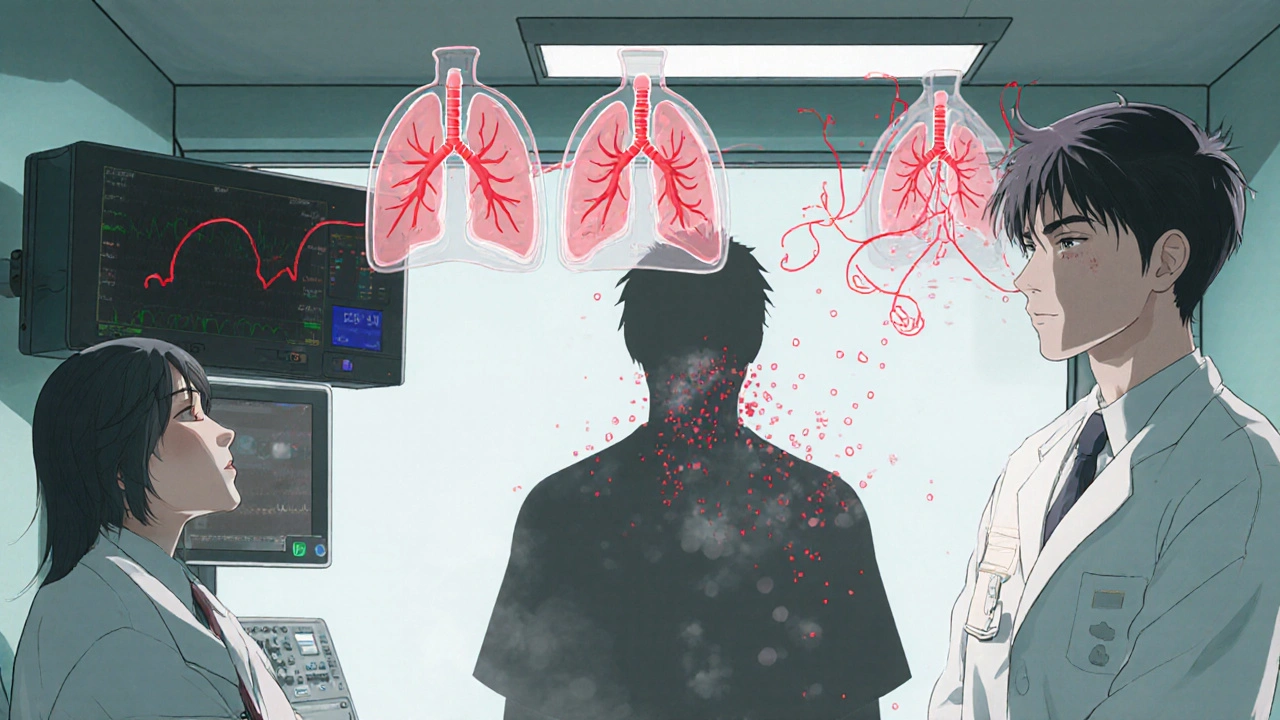
What About Aspirin Desensitization?
For some, there’s another path: aspirin desensitization. This isn’t something you try at home. It’s done in a controlled medical setting, usually in an allergy or respiratory clinic. Over several hours or days, you’re given slowly increasing doses of aspirin under close monitoring.
If successful, you can build tolerance. Many patients report fewer asthma flare-ups, less nasal congestion, and even a reduction in the size of nasal polyps. Some can stop using nasal steroids or biologics. But it’s not for everyone. You need to be stable on your asthma meds first. And you have to commit to daily aspirin therapy afterward - usually 325 mg every day, forever.
It’s not a cure. But for those with severe, persistent symptoms, it can be life-changing.
How to Stay Safe Every Day
Knowledge is your best defense. Here’s how to protect yourself:
- Carry a medical alert card - list your NSAID sensitivity and asthma diagnosis. Keep it in your wallet or phone.
- Always check labels - even “natural” or “herbal” pain relievers can contain salicylates, which behave like aspirin.
- Ask your pharmacist - before buying any new medication, even if it’s sold over the counter. Say: “I have NSAID-sensitive asthma. Is this safe?”
- Know your triggers - keep a symptom diary. Note when you take painkillers and what happens. Patterns matter.
- Get tested if you’re unsure - if you have asthma plus nasal polyps, ask your doctor about an aspirin challenge test. It’s the only way to confirm NERD.
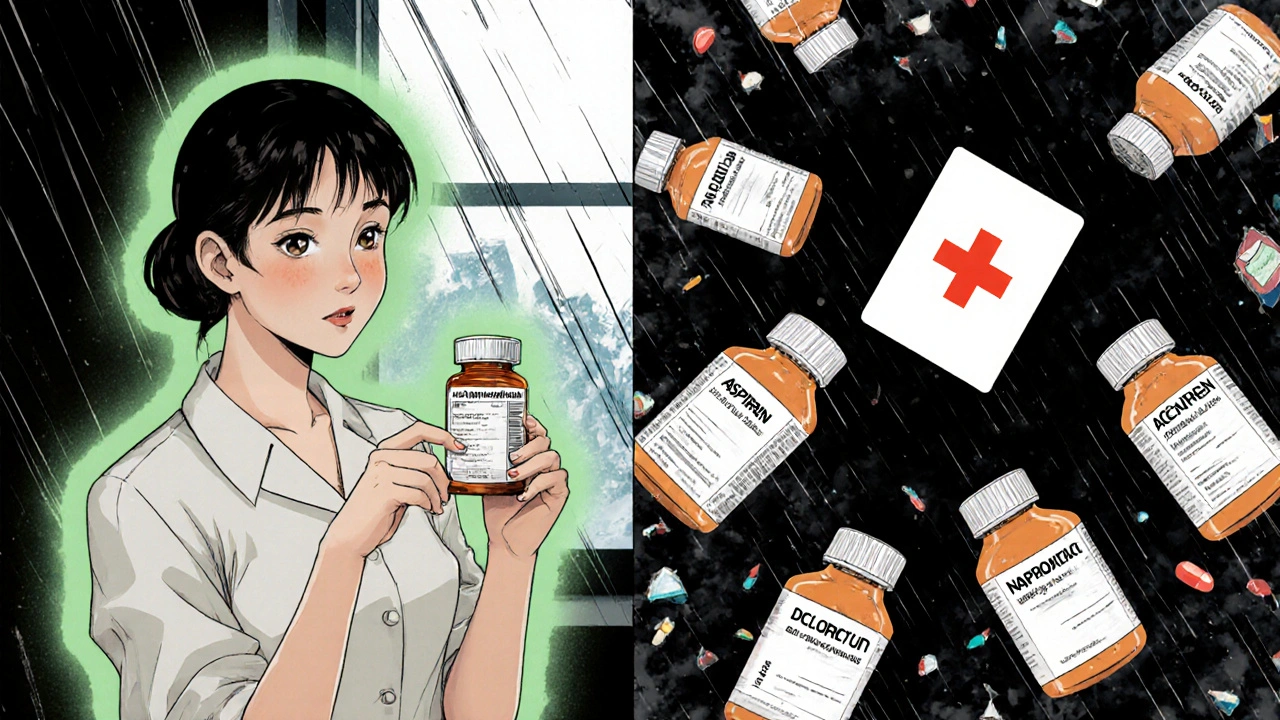
What to Do If You Have a Reaction
If you start wheezing, feel your chest closing, or can’t breathe after taking a painkiller:
- Use your rescue inhaler immediately.
- Call emergency services - don’t wait.
- Inform responders you have NSAID-sensitive asthma.
Don’t assume it’s just a bad asthma attack. This is a distinct, drug-triggered event that needs specific recognition.
The Bigger Picture
NERD is underdiagnosed. Many patients suffer for years, blaming their asthma for getting worse, not realizing a common painkiller is the culprit. Doctors don’t always ask about NSAID use. But if you have asthma and nasal polyps - especially if you’re a woman over 30 - this should be on the table.
It’s not about avoiding all medication. It’s about choosing the right ones. With the right guidance, you can manage pain, control your asthma, and live without fear of a sudden, dangerous reaction.
Can I take Tylenol if I have NSAID-sensitive asthma?
Yes, acetaminophen (Tylenol) is generally safe for most people with NSAID-sensitive asthma at doses up to 1,000 mg per dose. However, about 5-10% of patients still react to higher doses or frequent use. Stick to the lowest effective amount and avoid combination products that contain other NSAIDs.
Is Celebrex safe for people with asthma and nasal polyps?
Celecoxib (Celebrex) is a COX-2 selective NSAID and is usually well-tolerated by people with NERD because it doesn’t strongly block COX-1. Clinical studies show it doesn’t trigger respiratory reactions in most patients. But it’s not risk-free - always discuss it with your doctor before starting, especially if your asthma is severe.
Why do NSAIDs trigger asthma attacks in some people?
In people with NERD, NSAIDs block the COX-1 enzyme, which reduces protective prostaglandins. This shifts the body’s chemistry toward producing excess leukotrienes - powerful inflammatory chemicals that cause airway narrowing, mucus buildup, and swelling. This reaction is not an allergy but a biochemical imbalance specific to certain asthma patients.
Can children develop NSAID-sensitive asthma?
While short-term NSAID use in children has been linked to a higher risk of asthma flare-ups, true NERD is extremely rare before age 20. The condition typically develops in adulthood, with most diagnoses occurring between ages 30 and 40. Children with asthma should still avoid NSAIDs cautiously, but NERD is not a common pediatric diagnosis.
How do I know if I have NERD?
If you have asthma plus chronic nasal polyps or sinusitis and experience wheezing, congestion, or breathing trouble after taking aspirin, ibuprofen, or naproxen, you likely have NERD. The only way to confirm it is through a supervised aspirin challenge test in a hospital or allergy clinic. Don’t try this at home - it can be dangerous.
Are there any natural alternatives to NSAIDs for pain relief?
There’s no proven natural substitute that reliably works like NSAIDs without risk. Some people try turmeric or omega-3s for inflammation, but these don’t provide fast pain relief. For most NERD patients, acetaminophen or COX-2 inhibitors like celecoxib are the safest medical options. Avoid herbal remedies containing salicylates - like willow bark - as they can trigger reactions just like aspirin.
Can I use topical NSAIDs like Voltaren gel?
Topical NSAIDs like diclofenac gel (Voltaren) are absorbed through the skin, but studies show they can still trigger respiratory reactions in sensitive individuals - especially with large doses or broken skin. Most experts recommend avoiding them entirely if you have confirmed NERD. Safer options include ice packs, physical therapy, or acetaminophen.
What should I do if I accidentally take an NSAID?
If you’ve taken an NSAID and feel any breathing trouble, nasal congestion, or chest tightness, use your rescue inhaler immediately. Call emergency services if symptoms worsen or don’t improve. Don’t wait. Even if you’ve taken NSAIDs before without issue, NERD can develop suddenly - and reactions can get worse over time.
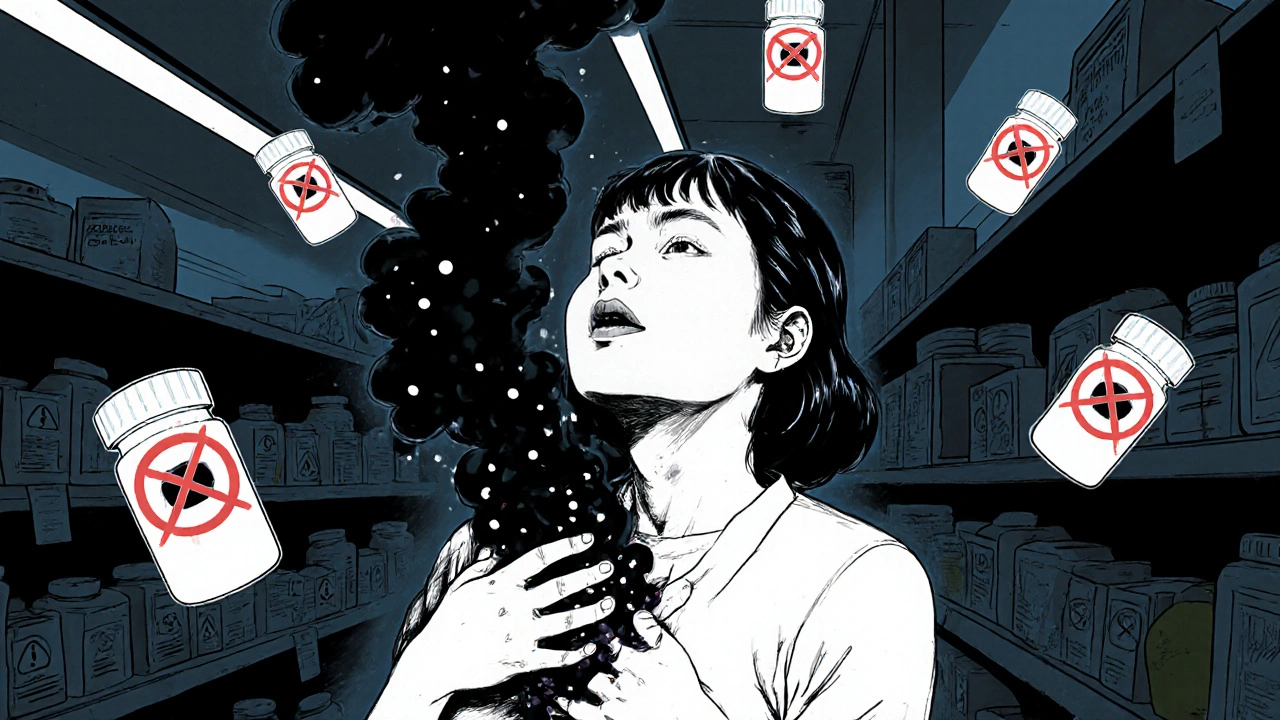

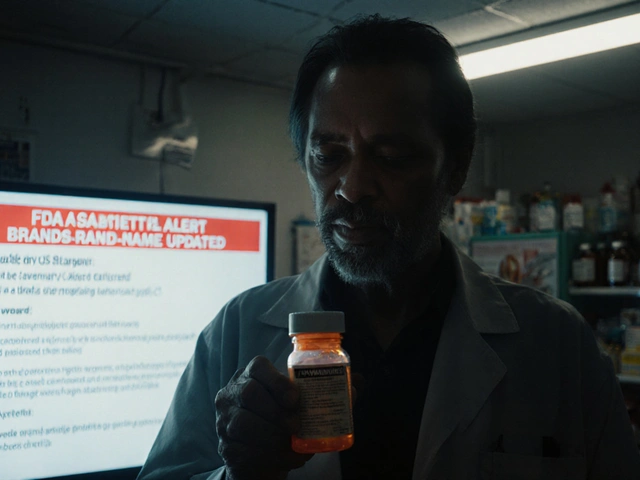


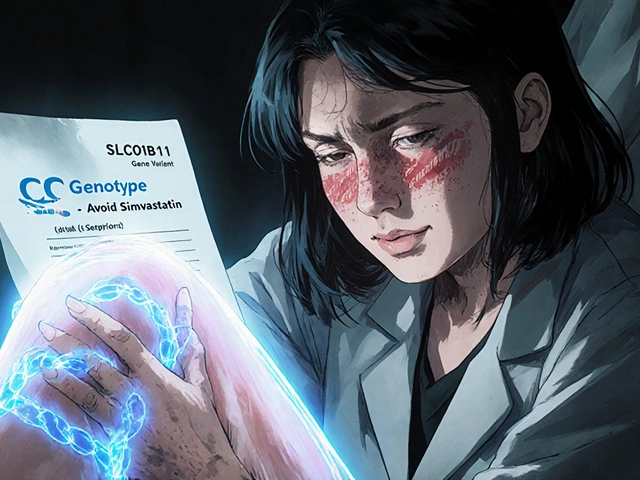
Andrea Jones
November 29, 2025 at 22:28
Wow, I had no idea NSAIDs could do this to asthma patients. I’ve been popping ibuprofen like candy for my back pain and just assumed it was fine. Guess I’m scheduling a doctor’s appointment tomorrow. Thanks for the wake-up call - this could’ve gone really badly.